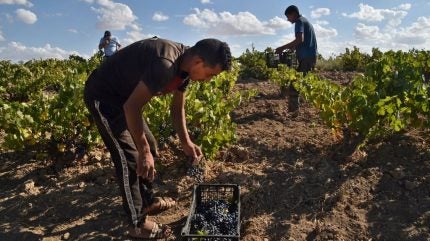

The golden era of foreign direct investment (FDI) to Algeria was between 2006 and 2011, which saw inflows average $2.25bn annually, according to data from the UN Conference on Trade and Development World (UNCTAD) Investment Report 2020. In the subsequent nine years, however, investment dropped to about $1.1bn a year. In short, Algeria did not recover well from the 2008 financial crisis.
There is more to it than that. Weak investment can also be linked to increased government restrictions on foreign investors, as part of a policy of economic nationalism that was pushed forward after 2008, according to IMF analysis. Algeria was ranked 157th out of 190 countries in the Doing Business 2020 report published by the World Bank.

Discover B2B Marketing That Performs
Combine business intelligence and editorial excellence to reach engaged professionals across 36 leading media platforms.
To this day, Algerian law limits the stake that a foreign investor can hold in a local firm to 49%, and requires foreign bidders for state contracts to find local partners. Corruption, bureaucracy, a weak financial sector and legal insecurity in terms of intellectual property rights are also major barriers to investment, says an analysis by Santander Trade, a leading provider of international market information.
Tunisia struggles for FDI in North Africa
While Egypt attracts the most FDI across the North African belt, Morocco and Tunisia have outperformed Algeria over the past decade in terms of capital received (despite their smaller population size), according to Investment Monitor analysis of UNCTAD data.
Algeria is rich in resources and economically stable, but diversification of foreign investment remains an issue. In 2018, the vast majority of FDI to the country went to industry (largely in extractives, but also automotives), followed by tourism, construction and infrastructure, agriculture and services, according to data from the National Agency for Investment Development (NAID). Like all countries, Algeria’s all-important tourism industry has been pummelled by Covid-19, as has overall FDI to the country.
The past ten years have also seen decreased European investment to Algeria, especially from France, the country’s historic partner, according to NAID data. Meanwhile, there has been a surge of interest from investors in east Asia and the Middle East. In 2018, the top five sources of FDI to Algeria were China, Singapore, Spain, Turkey and Germany – in that order.

US Tariffs are shifting - will you react or anticipate?
Don’t let policy changes catch you off guard. Stay proactive with real-time data and expert analysis.
By GlobalDataChinese investment has focused largely on projects relating to transportation, infrastructure and manufacturing. Turkey’s growing influence and investment in the country was highlighted by President Recep Erdogan’s 2018 visit to Algeria, as well as the Turkish-Algerian Business Forum that year.



